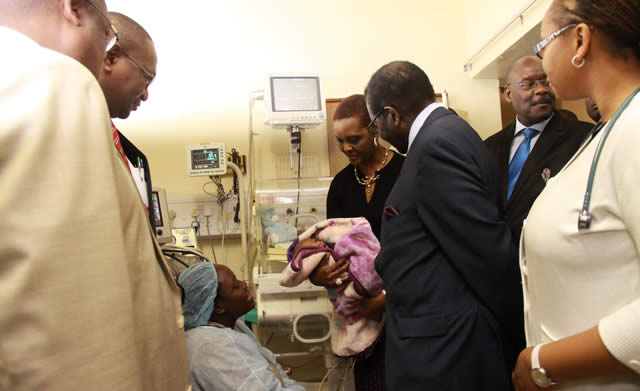Editorial Comment: Fiscal discipline the way to go

The Government of Zimbabwe has no option under present circumstances but to accept fiscal discipline and cannot spend more in running the country than it can raise in taxes.
Thus the decision to suspend bonuses for two years was a painful choice, but probably the least painful choice available.
Alternatives would be to raise taxes, which would have roughly the same effect on civil servants as they would take home less each month in order to have a bonus, or to scrap essential services.
There are those who complain about the numbers on the State payroll. But critics often fail to realise that there is not much room to manoeuvre. Easily the largest single group of State employees are school teachers, with the police forming the second largest group. Health workers, agricultural extension staff and the defence forces form a large chunk of the rest. These are not groups that can be radically cut and generally are the sort of people that almost everyone reckons should be kept.
At the same time the Government has to do its share to start growing the economy, which is the only long-term solution to its own fiscal problems. Taking the same percentage share in taxes of a larger economy will give it more money, without any economic damage. And a larger economy, especially with more people having decent jobs, has many other social benefits. So the Zim-Asset programme needs to be financed.
Even with sanctions there are some loan funds available. But borrowing money to meet payrolls is not a sensible option. Even if the Government could borrow far more, it would still have to think how the money would be repaid, and would need to push any extra borrowing that seemed prudent into capital expenditure, not into buying Christmas presents for families of State employees.
Zim-Asset might well attract other funds and loan funds, but no one is going to rush to invest or lend money if they think the programme is some sort of political gimmick or if they have any doubts over just how serious Zimbabweans and their Government see it. In other words we need to put in our own cash before we can expect other people to start chipping in.
At least Finance and Economic Planning Minister Patrick Chinamasa has given State employees plenty of warning and has explained what he is doing and why he is doing it.
Many in the private sector wish their own employers had been willing to do the same instead of announcing at the end of November that there would be no bonus and done so without any explanations.
All the changes, in both private and public sectors, over bonuses have at least returned some meaning to concept. There was a time when a bonus was something extra, available because there was a bit of extra cash floating around.
Over the years it seems to have become part of the expected annual salary and the cause of a lot of fiscal problems at the end of every year when a lot of extra money suddenly sloshed around the economy.
As finances improve across the sectors it might well be better if the extra money was used to raise basic salaries, improving standards of living, rather than being used for a wild spending spree that has little or no long-term benefit to anyone. Steady growth rather than wild swings are what families and the economy both need.










Comments